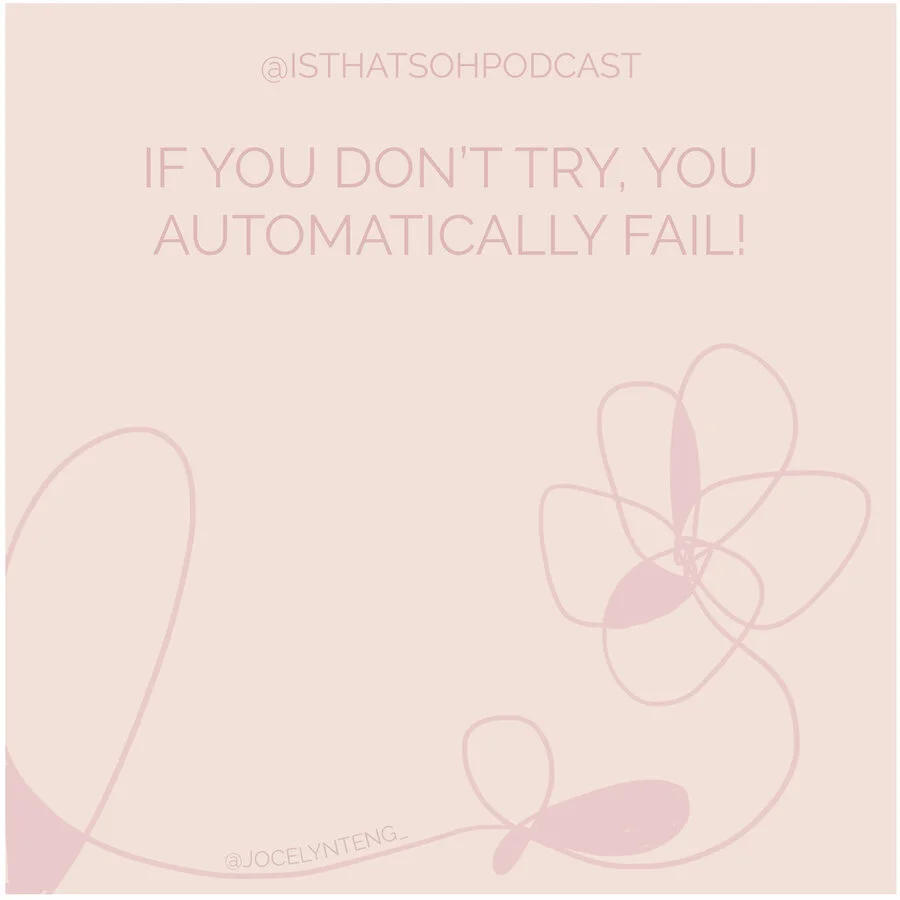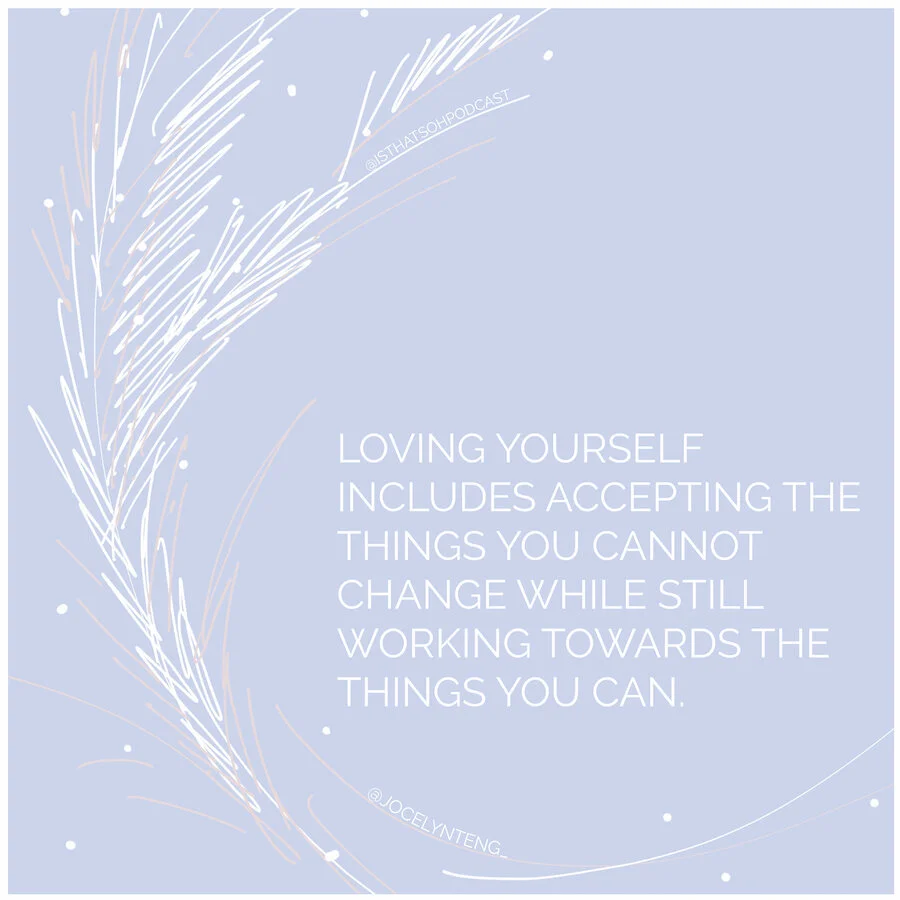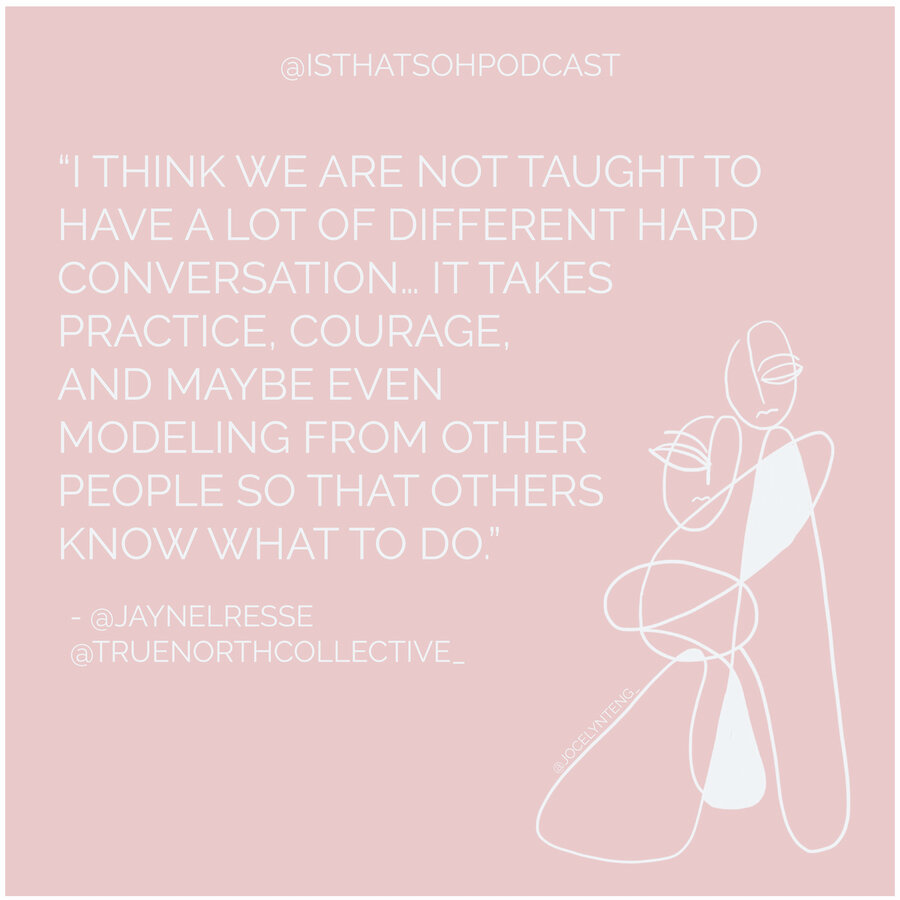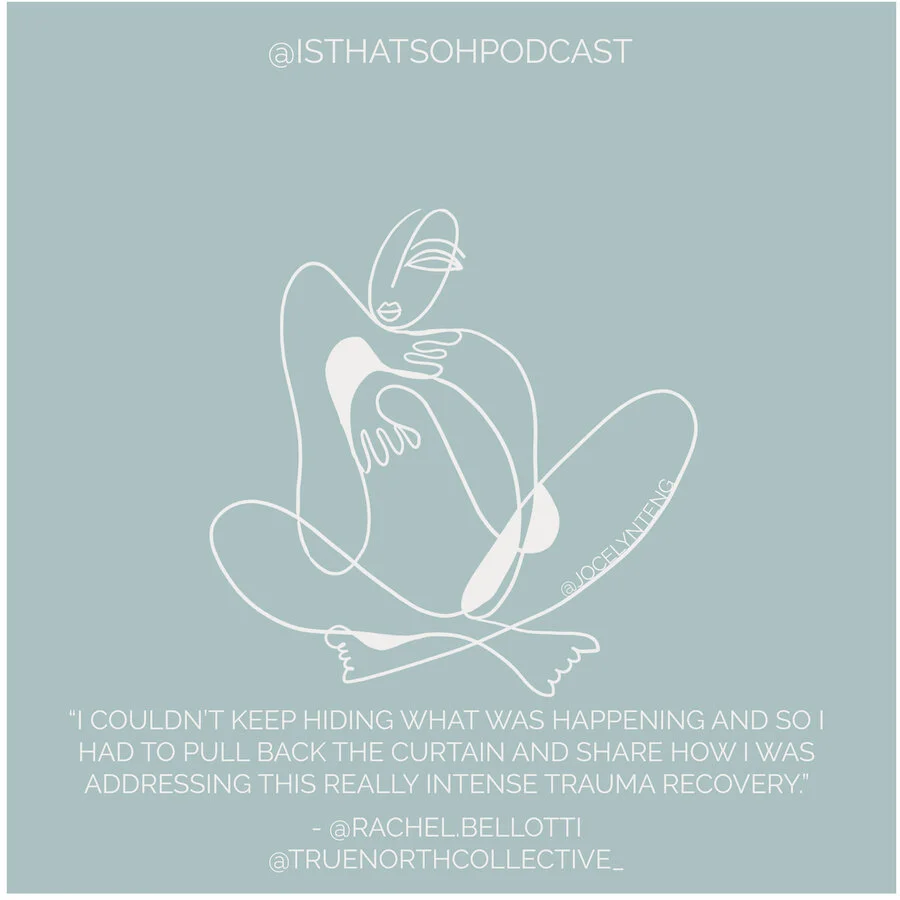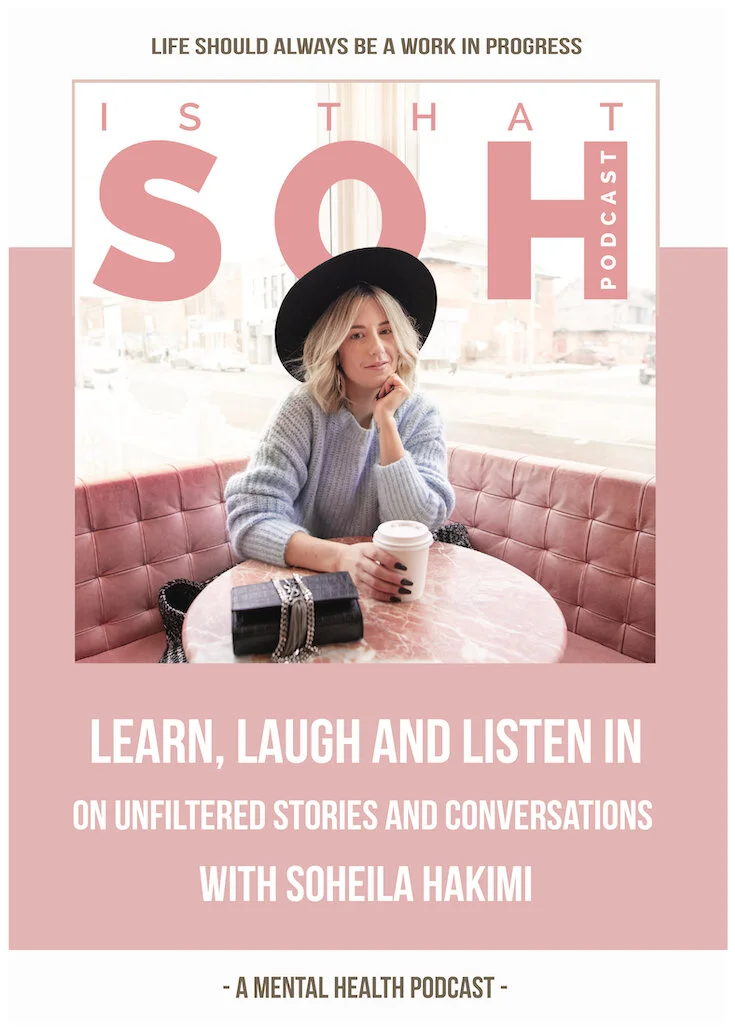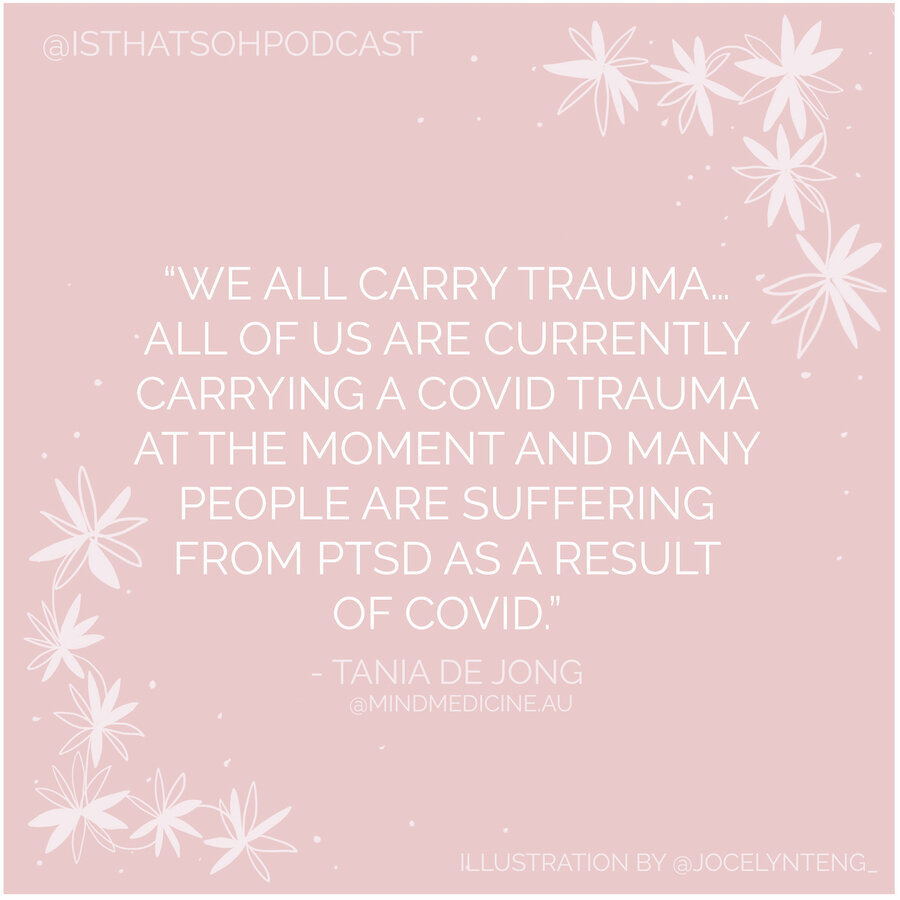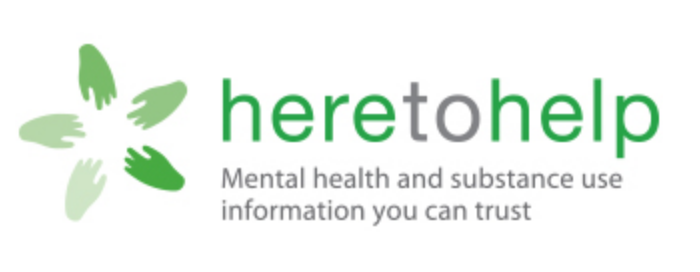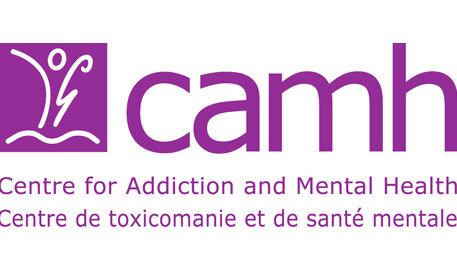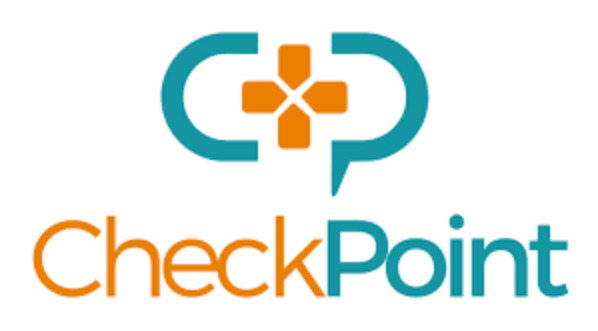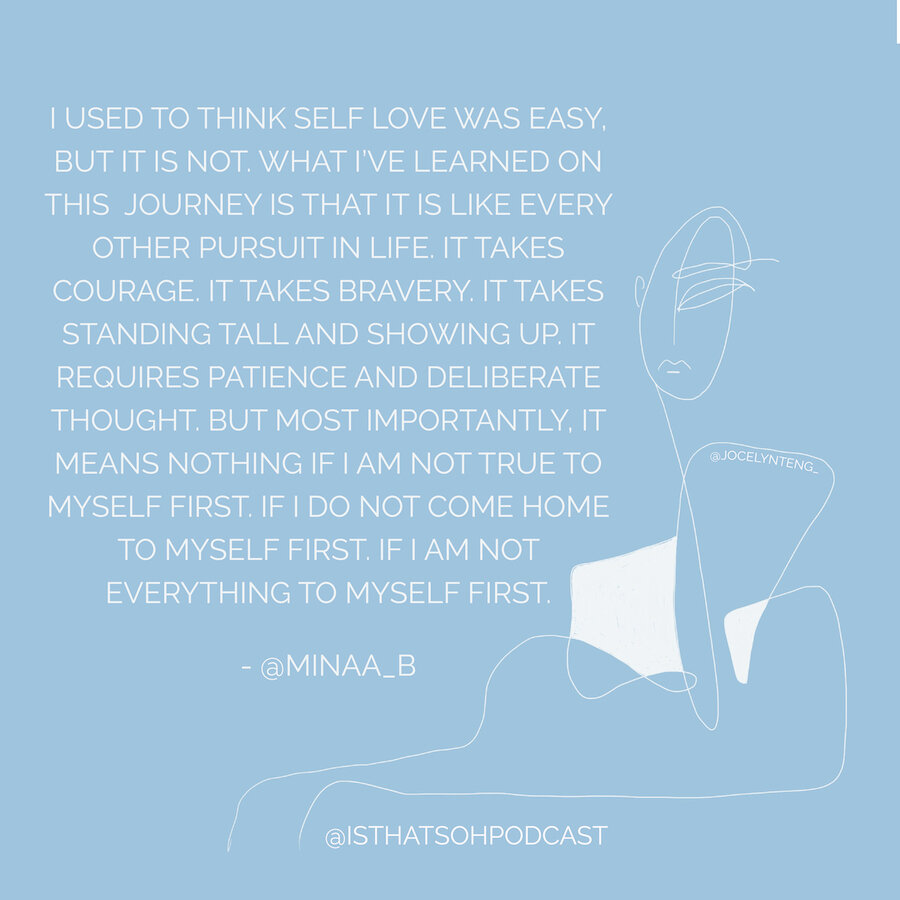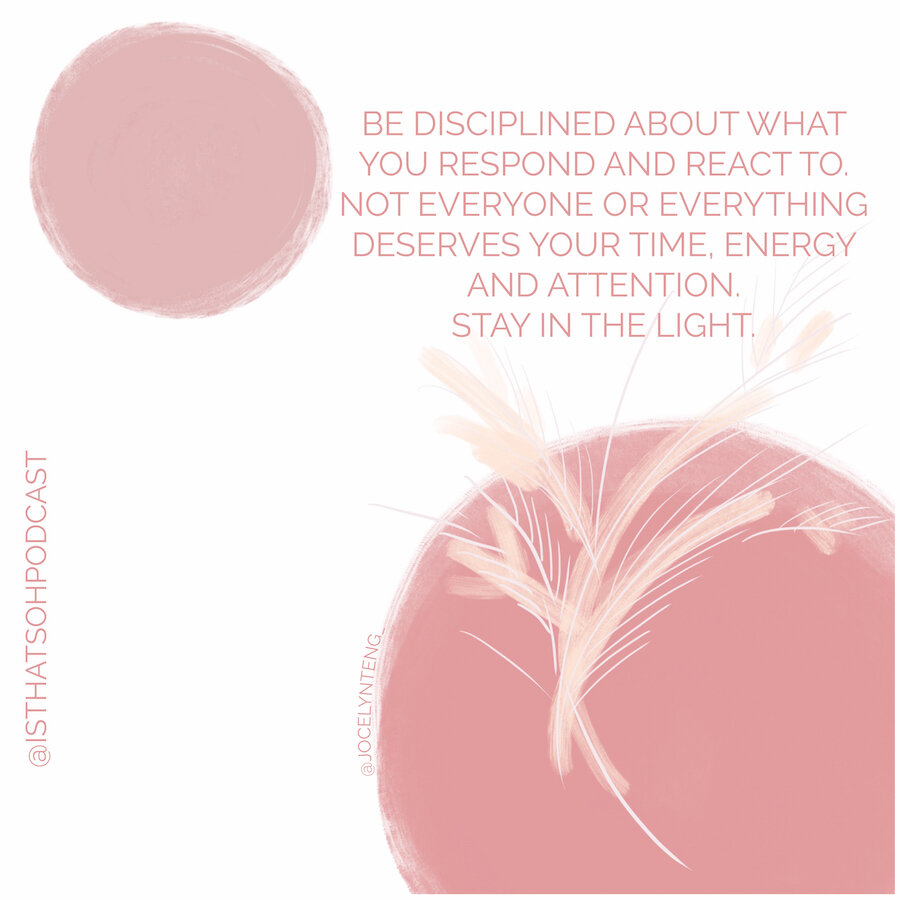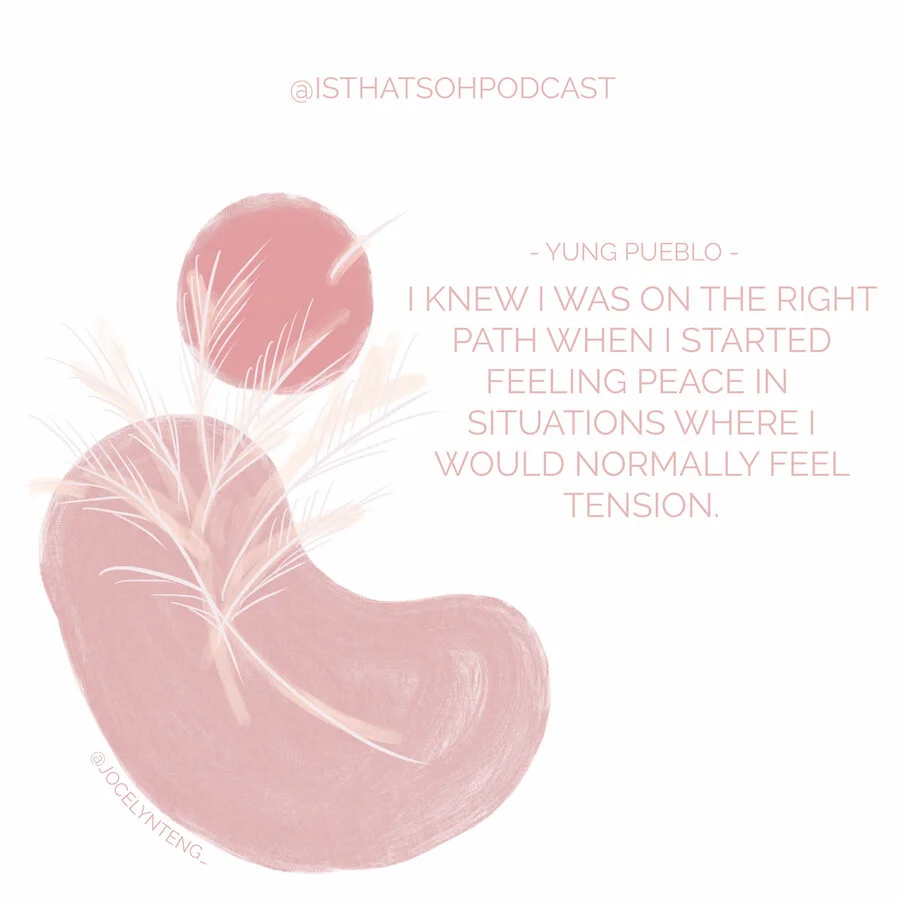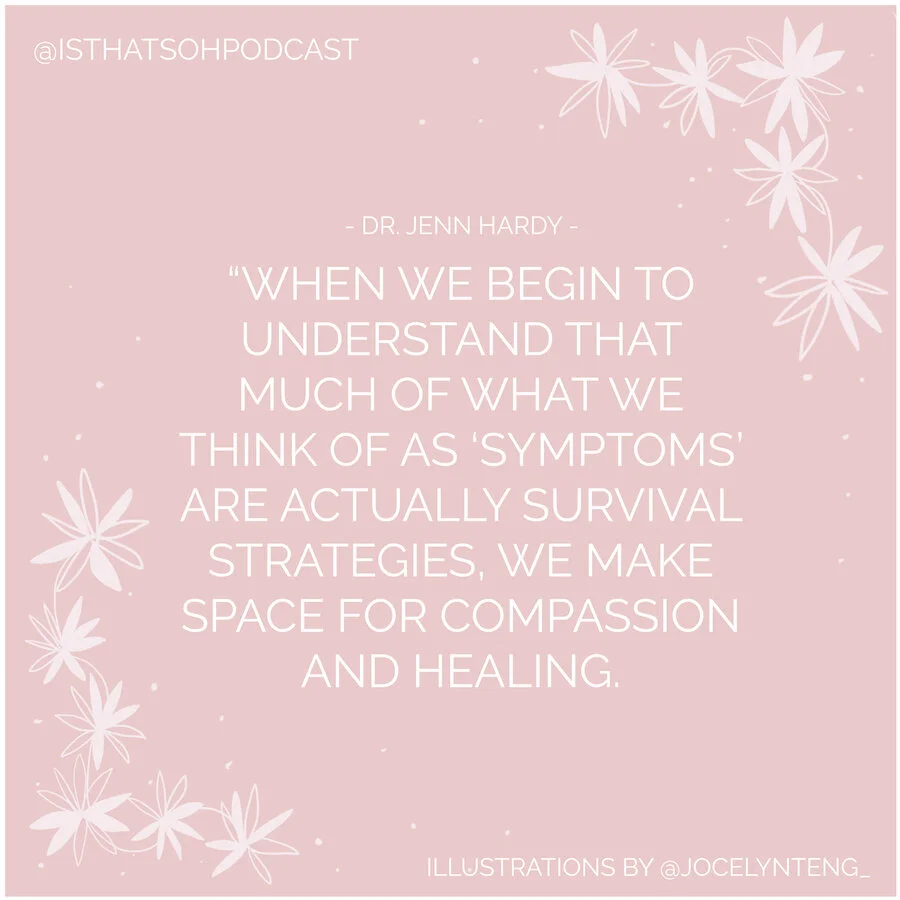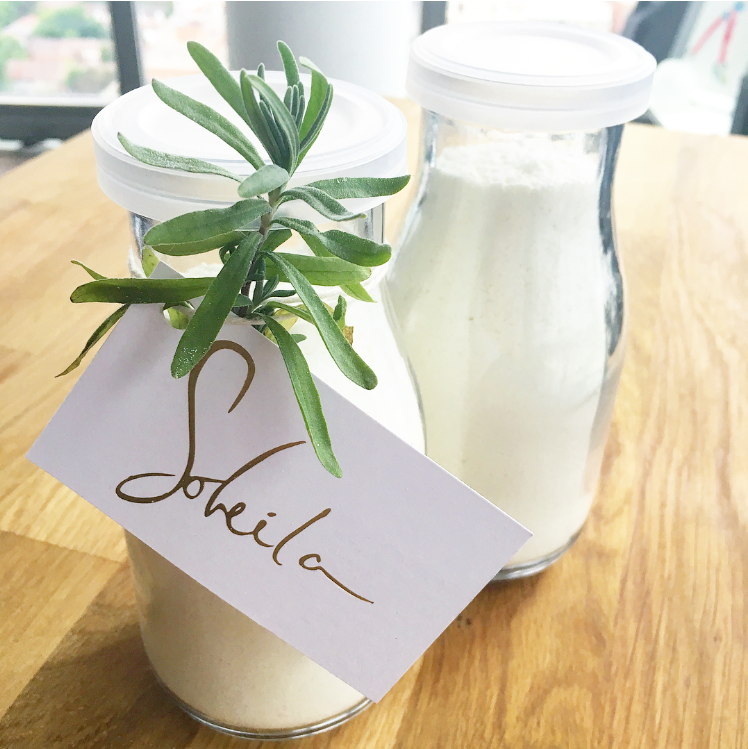EPISODE 30: HOW TO HOLD SPACE FOR HEALING CONVERSATIONS WITH RACHEL BELLOTTI AND JENELL REESNER
* Please Note - Some links in this post may be affiliate links *
Hello Friends and welcome back to the Is That Soh Podcast!
Today on the podcast I have invited besties and co-creators of the True North Collective Podcast, Rachel Belloti and Jenell Ressner, to come on the show and talk to us about the effects of childhood sickness long after recovery.
CHECK OUT THESE OTHER PODCAST EPISODES YOU MAY ENJOY!
Today on the podcast we are going to be talking about childhood sickness, the effects it has on your psyche, trauma held in the body, how to hold space for healing conversations, and surprising overlaps that help friends relate.
Jenell and Rachel are co-creators and co-hosts of the TRUE NORTH COLLECTIVE podcast + experience. Their podcast facilitates community spaces for honest reflection, self-inquiry, light movement, and real conversation that celebrate being a work-in-progress and finding/living one’s TRUE NORTH. To learn more about Jenell Reese and Rackel Bellotti’s podcast ‘The True North Collective' - CLICK HERE
I hope you enjoy this episode as much as I did! Feel free to leave your thought below and save a few images I created that include affirmations for healing and episode quotes about healing.
Also, special thanks to Mattias Friberg for composing the music for this podcast and perfecting my sound!
- Where To Find Rachel and Jenell Online -
INSTAGRAM ▶ @thetruenorthcollective or @rachel.bellotti & @jaynelreese
WEBSITE ▶ https://www.thetruenorthcollective.org
PODCAST ▶ https://podcasts.apple.com/us/podcast/the-true-north-collective-podcast/id1446673156
Follow The @IsThatSohPodcast On Instagram!
If you have any comments or questions about this episode on how to hold space for healing conversations feel free to leave them below. Also, don’t forget to check out some quotes about healing and healing affirmations below!





